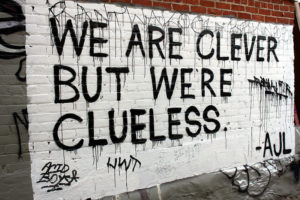This week our centonomy class was taken through the fundamentals of property investment. Our property consultant explained the types of investors in property in a very interesting way, which I think would apply to most types of investment whether it is in shares, property, business ventures etc. What he brought out was the different approaches, characteristics and motives the different types of investors have. According to him investors can be classified into three categories. There is what we call the actual investor. Then there is the buyer. Then lastly, which is not really investment is the speculator. Many people are speculators but they have mistaken themselves for investors.
Let’s understand the three using the example of a shirt. Say Karimi bought a shirt from Gikomba for three hundred shillings. By simply taking it to town she may be able to sell this shirt for one thousand shillings. She is an investor. She knew the price she bought it for was below what she could actually sell the shirt for in town. Mutua buys the shirt from Karimi. He washes it, irons it and wraps it in a nice package. He then goes into Westlands and sells the shirt for two thousand shillings. He is a buyer because he knows at the price he bought it at was the fair market value. He had to do something else to it i.e. value add to fetch a higher price. Say Georgina buys it from Mutua expecting to sell it in Westlands to someone else for three thousand shillings. Georgina is a speculator. There is no fundamental reason why someone would buy that shirt from her at that price and she is not doing anything extra it to warrant a higher price. She is counting on someone else’s ignorance.
Let’s look our three characters again in the context of investments. Karimi has been a keen observer of the stock market. One of the shares she has been doing some research on has just initiated development of a commercial centre. However Karimi notices that the share price has not moved. She does some analysis and it becomes obvious that the market has not factored in the value this commercial centre will bring to the company as well as the incremental profits that will arise from this. She decides to buy the share. Two years later when the commercial centre is finished, leased out and is getting a lot more attention in the news, demand for the share rises. Karimi is able to sell her share with at fifty percent gain. It takes hard work via research to be an investor at this level. You have to be prepared to keep an eye on what is going on around you to spot these opportunities. You also make decisions on facts. It was a fact that the company was going to put up a commercial centre. Karimi literally makes money at the point of investment because she realises a fundamental development has not been factored into the share price.
Mutua buys an acre of land. The area where he buys has experienced tremendous growth. Roads have been expanded and several universities are opening up in the area. He recognises that his investment is not the land. Had he been able to spot the opportunities earlier before the new developments came in, he would have now been selling that land at a higher price. He would have been an investor at that point. He knows he has bought the land for market value, which has already factored in all these changes. His opportunity lies in the student housing that will be required. He gets partners on board and together they develop hostels, which will provide them with decent income. Just like with the shirt. Mutua knew he had to do something extra to realise gains. It was not simply the land that would give him these gains; it was adding value to the land by building. The opportunities to realise gains from the land (based on fundamental changes) had already passed him by. If you are pursuing an investment at Mutua’s level you have to be willing to go the extra mile and do something different to get your return.
Georgina buys a car. She thinks she can sell it for a higher price to her colleagues at work. She bought the car when it had already landed and in Nairobi. The dealer had already factored in his hard work and profit margin into the sale price. Anyone else could have walked into the same dealership and would have bought it for exact same price. As our facilitator this week put it, she is just riding on hope that someone will just buy it from her at a higher price. Unlike Karimi she wasn’t the early bird in this equation. Unlike Mutua there is nothing she is doing to go the extra mile and value add. She is a speculator. Speculation may take the least amount of work but is a very risky strategy because there are no underlying fundamentals to help you conclude that someone else will buy that particular investment from you. Just like the shirt she is hoping others are lazy or ignorant enough to help her make an easy profit.
Do not be fooled. Actual investment does take a fair amount of work and no one can spoon-feed you. Which type of investor are you or are you prepared to become?



Thank you,
This to me was an eye opener. In the past I have heard people make money then I put my money there I do not benefit for long now I know in a business I have to add value and do a lot of research before putting my money in.
I will stop buying property because people say it will appreciate instead i will research on property which I am interested in.[. Now I am wiser I will be doing research before investing in shares in the past I have been listening to my broker and at times the increase in share price is for a short while then it goes and remains down forever.
Thank you so much
Nancy
That’s grt ….It was interesting…I now have to be like mutua n karami ….Thenks waceke…